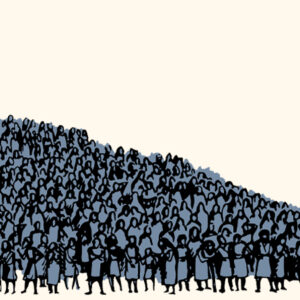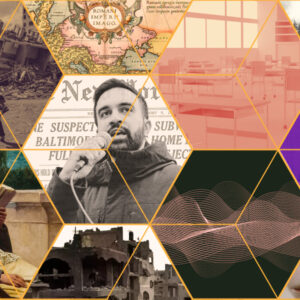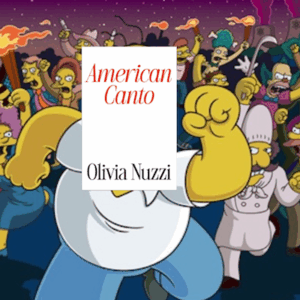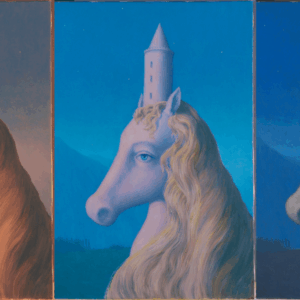1990: theater of the absurd
Two years after the double-cross had forced me to stay away, I returned to Eleuthera with my homeboy from Birmingham, Stump Walker. Mac’s arrest was the first in a series of events that altered the drug landscape in Eleuthera. Cyril took a chance against my advice and wound up getting arrested in Alabama for conspiracy to distribute. Franz was indicted by the Bahamian government and given five years. Stefrey refused to operate without Franz, returned to fishing full time, and built a mansion just outside Hatchet Bay. Andres got locked up on a sting operation. Daniel barely wanted to talk.
Stump wanted to take a chance despite this recent history, and I needed income, which had been drying up, especially since I split with Cat Daddy when I found out he had gone to Eleuthera behind my back. Since we had history, and he had forgiven me long ago for running off with his package, I found myself able to look past it, but I knew our friendship had taken a serious hit. Cat eventually went back to dealing with his pops in New York while I waited for the heat to cool down on the island.
Upon arrival in Eleuthera, Stump and I settled at an inn, and I contacted Daniel, who felt betrayed by Mac and Cat Daddy. The island had taken on a different identity, and I no longer felt comfortable and confident. I was made to wait until people could be sure I was not the police looking to set them up.
Stump did not handle the wait well. He tired of going to Club Let Me Remember for jackfish and peas and rice, or to Kristiano’s in Gregory Town for grouper and grits. He soon lost interest in the tongue souse and cracked conch from Big Mary’s and demanded to fly to Nassau and deal with some people he knew. He did not want to walk the white-sanded beaches, nor was he interested in snorkeling in the Atlantic. Soon-coming became a dirty word. Stump could not understand why he should wait so long. I left with him for Nassau, knowing all he needed to do was sit tight a few more days, cause don’t nobody rush for nothing on Eleuthera. However, before we left, Stefrey did give me the number of his youngest brother who lived in Nassau.
We caught Bahamas Air and landed early on a Monday in an attempt to blend with other tourists entering the island. Since we were already in the Bahamas, there was no need to clear customs. We were stunned when a Bahamian official walked up, asked us to step into the bathroom, and body searched us for drugs, which he did not find. However, the official did question Stump about the wad of money he had strapped to his waist, which was less than ten thousand, and legal. The search shook us a bit because we did not expect it. Leaving the airport, I suggested to Stump we go see Stefrey’s brother. I wanted to talk to someone who knew the island.
Stefrey’s brother, Drake, would sell us a kilo for a thousand dollars more than we would have paid on Eleuthera, but he would also sail us back to Eleuthera in his fishing boat. He had to go that way to get to Cat Island and knew that there was intense security at Nassau airport. If at all possible, no one smuggled through Nassau, the main reason being you had to clear customs before taking off, so you were dealing with two agencies—coupled with the fact that Nassau was a tourist attraction. Stump declined his offer, stating that he wanted to check out his own connection.
We left Drake’s boat repair shop with Drake driving to the address Stump provided. While we waited in the van, I asked Drake about the goings-on in Eleuthera. We talked about what Mac’s arrest meant to the island, how the DEA and Coast Guard were making concerted efforts to disrupt the actions of anyone involved in drugs. Even though Franz had gone to prison, they’d managed to save money.
Before I could say that Stump was taking too long, he hopped back in the van and told us everything was cool. He’d only bought one kilo, and it was strapped to the middle part of his body at that very moment. I wanted to inform him of his idiocy. We were taking chances we didn’t have to take.
Drake made a right, and then we rounded the left curve and came to the airport parking lot. Once the van engine turned off, Stump slid the side door open and he and I hopped out the front. Within a split second of us thanking Drake, a car rounding the left curve accelerated, then stopped and parked behind us. Six men got out of a late model Ford and surrounded Stump.
I could tell by the bewilderment on Stump’s face that these were the same men who had sold him the package strapped to his body. When Drake closed his door, I glanced over, but before I could turn back around, Stump bolted through the loose semi-circle with head down, body low and square. Damn boy ran for everything his mama gave him—life. He cleared all arm’s reach, but those same arms rearranged themselves in swift pursuit without hesitation. Stump ran in wide, arcing circles, trying to avoid capture, each time expanding his circumference, occasionally darting a straight line and then zigzagging in desperation. How could one utter the word help? Couldn’t call the average citizen—and damn sure couldn’t call the police. Quandary might be the right word. Stuck in a moving picture. Suspended.
One guy stayed by the van and held his elbow chest-high to me as if to prevent the contemplation of retaliation. Drake did not move. Not a breathing human in sight. Odds dictated I freeze and watch those chasing arms grab Stump about the waist, stopping and then twirling his torso. He could’ve been in a modern ballet, ripped shirt and all. But more importantly, the package tore, and white powder trailed Stump everywhere he was flung. Call it Theatre of the Absurd. Call it early American vaudeville. To call it a rag doll disintegrating into yarn does not do the metaphor justice. It took one minute for the five men to take the package off Stump’s body, leaving him swinging, clutching, and grabbing at the wind. Stump resurrected himself from the ground, dazed and breathless. No police. We hopped back in the van, negotiating the curve at almost fifty, not in pursuit, but in gettin ghost. We were victim and perpetrator at the same time.
Two days later in Miami on 135th and 22nd Avenue, also known as Opa Locka or “The Locks,” I relayed the story of how Stump spun around, scattering a kilo of cocaine across the parking lot’s asphalt, to Craig in his living room. Craig had been out of federal prison one week, and this was the conversation I least expected to have with him. I retold the sequence of events of how Cat Daddy had betrayed me, and how Stump hadn’t wanted to wait so he ended up going to Nassau and getting robbed. “Unbelievable,” Craig kept telling me after I repeated each detail of the robbery at least twice. “Unbelievable. And you waiting on dude to come back from Birmingham with more money. Are you serious?”
I knew it sounded crazy that Stump was still trying to score. Once we had arrived in Miami, Stump went back to Alabama to retrieve more money to recoup the loss. If he was careful and got a good deal in Miami, then he could squeeze a profit, plus throw something my way. This is what happens when one becomes desperate. I longed for those adrenaline moments again, so I ignored my better judgment and agreed to wait in Miami. I had become as desperate as he.
The tropical climate made it easier to embrace the Magic City as a second home. I was enamored with its welcoming warmth, the bright pastel architecture, the red-clay ceramic tiles and the flatness of the landscape, which stretches to the edge of the ocean. I loved the palm and orange trees and the canals that snaked their way behind people’s homes.
Poverty and wealth were distributed unequally. This became evident when riding down Ali Baba and 22nd Avenue, where the rolodex of black and brown images blended with the run-down houses and storefronts hugging the cracked sidewalks. There was a laughter and sadness, a compilation of joy and sorrow in the sounds that escorted one throughout neighborhoods like Opa Locka and Liberty City, which were just coming out of the race riots of the mid-eighties. There was a sense that you were at the edge, or the beginning, of the world.
Two days after I told Craig about the incident at the airport in Nassau, I sat in a run-down projects apartment a stone’s throw from the Orange Bowl. The lights were not turned on, and the orange-reddish sun was bleeding faint light through venetian blinds that were covered in the soft film of cooking grease from the stove. I thought about five hundred dollars, the crack that further stretched the divide between Stump and me. Five hundred dollars turned out to be the magic number when Stump had come back with ten grand and refused to deal with Craig. For ten thousand five hundred dollars, Craig would have gone to his father and gotten us a little more than a half a kilo. His father still had his connections with the Cubans, and being that Craig had only been out of jail for a few days, he needed the money.
Instead, I was in the living room on a brown, worn couch that sagged in the middle, surveying the apartment while we waited on the person called to bring half a kilo for ten thousand dollars. In the kitchen sink, dishes were piled in a ceramic and plastic mountain. A tricycle with only one wheel on the back leaned against what was supposed to be a dining room table, only it was a card table with an ashtray and a pack of opened cigarettes on top. In this business, I had learned that one must always think something is stirring in the woodpile. There is always a rat, a cockroach, or some other indestructible rodent or pest in the background. It was the only thing I had been certain of in thirty-three years of living on earth. From the time I had learned to walk, there was always some figure that told me to keep my guard up, to anticipate. Pugilist might be a better word. Stick and move. Jab. Sidestep. Rope-a-dope. React. Combinate.
I got up, walked to the window, and our car was still parked in its spot. The parking lot was abandoned. I went back to the couch and sat down. Something in the milk ain’t clean. Can’t be. Stump watching television like he right at the crib. I wanted to ask if he needed a damn pillow and a drink, but instead I prepared to tell him I was out. Gone. Ghost. As in I hadda feeling. Soon as I hadda that feeling, the front door burst open, and seven men entered with automatic weapons and handguns meant to blow a muthafucka two universes past kingdom come. This is how life stops and turns on a dime in a split second. One second before, we had been breathing a little bit easier, thinking of some future event. And just like that, we were now contemplating how we were going to die.
There is always one in the pack itching to pull the curve of a trigger. Maybe he had no father; maybe his mother sold her body for crack; maybe his need for money superseded our need; maybe he was having a bad day, and the assurance that someone could pay for his struggle was the impetus for him to bullet-hole us into oblivion. Please don’t squeeze the trigger, I wanted to say, but I could not. It would’ve been cowardice because, in my world, men had to take whatever life gave them. Tears and begging spoke of the weak. No room for emotion and compassion and tenderness and fear. Had to take it like a man before I graduated from crawling to walking. AKs, MAC-10s, nine millimeters, and .44 longs were locked and loaded on our skulls. I reclined on the sofa, knowing this would be my last day on earth.
Bitch set us up. Fucked around, and we in the trick bag. Slipped was what we did. Caught with our pants down below the kneecaps. Instead of the police, we got the stick-up boys. Death rattling hard at the door, and we had to figure something out—right here, right now, or tomorrow would be whatever memory we left behind. One of the men walked over and placed the open end of his .357 to my temple, and I was suddenly transported back to my grandmother’s green clapboard house. Men and women playing spades, drinking red liquor in Dixie Cups, and listening to the jukebox recapitulate a certain kind of blues one can only know growing up in Alabama. Smoke so thick you can cut it with a butter knife. I am ten, and Bo Willie, my grandmother’s boyfriend, is yelling at her because she is yelling at him for drinking too much liquor. He raised his fist like he wanted to hit her, and I remember I wanted to shoot him with a gun. However, all I had was a homemade rubber-band shooter. I imagined tying a clothespin to the tip of a fallen pecan branch, straining the rubber band until it latched in a cocked position. Then I imagined the rubber-band shooter as a sawed-off shotgun and when I squeezed the trigger, Bo Willie’s chest exploded into a collage of red. One squeeze of the trigger and grandmother would be free. I had quickly dismissed the idea: I would never be capable of taking a human life. Guns killed, and I could not kill.
Unfortunately, the guy pointing the nickel-plated .357 at my head did not harbor the same feeling. He understood bang was forever, and if forever was where I needed to go for him to get that money, he would most happily help me get there. Clearly they wanted—no, needed—the ten thousand dollars wrapped around Stump’s waist in a money sack. I wanted—no, needed—for this not to be the place where my dead body would be rolled onto a stretcher and into an ambulance. My mother could not get a call at eleven thirty on a Tuesday night with information that her only son was deader than a doorknob in a projects apartment in northwest Miami.
Before the man spoke, I did—in a calm and measured manner. I told him we were unarmed and that, it’s yours baby boy.
“Stump, give ‘em the money,” I calmly said, yet he looked at me and did not flinch. I repeated, “Stump, give them the money,” and I could tell he was wrestling with the idea of being robbed—again. This trip had been nothing but disastrous from the get-go. How does one get robbed twice on a drug trip? The idea was to make money, not lose money. However, this was not the time to be a hero; all the heroes I knew were in the boneyard. His hesitation became too much, and I wanted to leap across the room and smack him for playing with my life. The man with the .357 pointed the barrel at Stump and asked, “Where dat money at?” This in turn excited the other men who had circled us; any gunfire would result in splattered skull and bone fragments sprayed everywhere. Someone among them wanted to kill us, I was certain.
The light bulb popped on in Stump’s head. He rose up and slowly unbuttoned his shirt and slid the moneybag from around his waist. The guy holding the .357 walked over and grabbed it. He was looking at me now. If you gonna shoot then shoot. Let’s get this over with, right now. No, I will not beg for my life if that’s what you want. These streets got me like they got you. Game recognize game. Shoot. He could not hear my thoughts, but he knew. I still understood that one of these men pointing a gun craved pulling the trigger—there is always one. But that evening, the alpha male—the one who stops all movement when he speaks, the guy holding the .357, who has no problem boring a tunnel in a person’s forehead—decided fair exchange, no robbery. No harm, no foul. Everything even-Steven. Tonight, we live.
From HOOK. Used with permission of Augury Books. Copyright (c) 2015 by Randall Horton.













